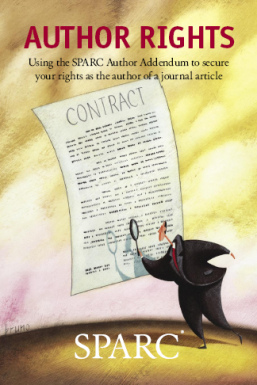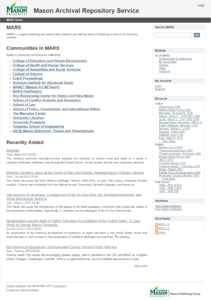Consider using addenda to a standard publisher’s agreement to request a bundle of key rights you will need to share your article. The following examples offer contract language you may draw from to create your own addendum, or you may use one verbatim.
 The SPARC Author Addendum is a legal instrument that authors may use to modify their publisher agreements, enabling them to keep selected key rights to their articles, such as:
The SPARC Author Addendum is a legal instrument that authors may use to modify their publisher agreements, enabling them to keep selected key rights to their articles, such as:
- Distributing copies in the course of teaching and research,
- Posting the article on a personal or institutional Web site, or
- Creating derivative works.
The Science Commons: Scholar’s Copyright Addendum Engine is another handy tool to help you negotiate author rights. Use it to generate language customized to your manuscript, including a range of access options.
Each addendum gives you non-exclusive rights to create derivative works from your Article and to reproduce, distribute, publicly perform, and publicly display your article in connection with your teaching, conference presentations, lectures, other scholarly works, and professional activities. However, they differ with respect to how soon you can make the final published version available and whether you can authorize others to re-use your work in various ways.
The Committee on Institutional Cooperation (CIC), a consortium of 13 American universities, offers a model addendum to publication agreements that “affirms the rights of authors to share their work in a variety of circumstances, including posting versions of the work in institutional or disciplinary repositories.” This addendum may be modified on a case-by-case basis, as needed, but it offers contract language that ensures authors greater control over their scholarly output.

